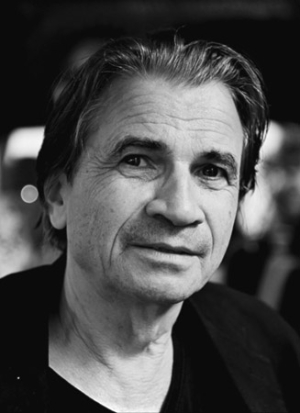Biography
Christoph Weinert spent most of his childhood and youth in Schleswig-Holstein in Northern Germany. After graduating from high school, he completed an internship at the Cinémathèque française in Paris, where he made the decision to study film. After completing a degree in art and visual communication with a focus on film and photography at the Kunsthochschule Kassel, he worked as an assistant director for several film productions in France and Germany.
Christoph Weinert made his feature length film debut in 1997 with "Weiße Jäger, weißes Gold", a TV documentary about elephant and rhino conservation in Namibia, Botswana and Zimbabwe. This film was nominated for the television prize 'Golden Lion' offered by RTL. For broadcaster ZDF/Arte he made "Sauve qui pense - Rette sich, wer denkt" (1998) a film essay with the French philosopher André Glucksmann. Weinert's much-discussed docudrama "Die Quotenmacher" (2001) dealt with the meaning, effect and (non)sense of TV ratings. In the following years, he made the television documentaries "Geklonte Zukunft" (2002) and "Helmut Schmidt - Mein Jahrhundert" (2008), a highly acclaimed film portrait on the occasion of the 90th birthday of the former German Chancellor. He also made the docudramas "Bismarck - Kanzler und Dämon" (2007) and "Churchills Verrat an Polen" (2009).
For the five-part docudrama "Vom Pionier zum Millionär" ("Pioneers Turned Millionaires", DE/US 2010), he produced the episodes about Levi Strauss ("Blue Jeans Billionaire") and Henry Steinway ("Birth of a Legend"); at the Worldfestival in Houston, Texas, the series was awarded the Special Jury Prize in the Historical Series category in 2011. Weinert's documentary "Hindenburg" (2013, TV), about the German field marshal andsecond elected president of the German Weimar Republic Paul von Hindenburg, also received much attention.
Weinert remained true to the docudrama genre over the next few years, with "Geheimsache Mauer - Die Geschichte einer deutschen Grenze" (2011, German Television Award nomination), which tells the story of the Berlin Wall from the perspective of those who planned, built and guarded it, "Berlin und Tucholsky" (2015), "Fallada - im Rausch des Schreibens" (2016) and "Der Reichstag" (2017). In the documentary two-parter "Dutschke" (2018) he dealt with the life and assasination of student movement icon Rudi Dutschke, and in the two-parter "Jüdisch in Europa" (2019) with Jewish everyday life in various European countries in times of increasing anti-Semitism.
His documentary film "Acht Geschwister", for which Weinert accompanied eight siblings born between 1930 and 1940 in Pomerania to the place of their childhood. After its premiere at the Hof Film Festival in October 2022, the film was released in German cinemas in February 2023.
